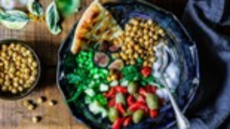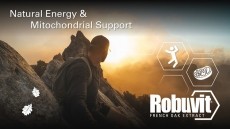Industry hopes Olympics will torch supplement contamination concerns
However better quality products, improved and more transparent supplement testing programmes coupled with more accurate and sophisticated anti-doping controls, mean the supplements industry – at least honest players – have little to worry about at next month’s London Olympics.
While acknowledging contamination issues have drawn unwanted attention at Olympiads past, Paul Brown, lab manager at reputed UK-based product tester, HFL Sport Science, points out that ever-heightened scrutiny around the nutritional inputs of elite athletes means there is a much reduced likelihood of a rogue product smiting an athlete – and besmirching the wider law-abiding industry.
Not that it is non-existent. On your marks: DMAA…
DMAA confusion
“Historically there have been issues associated with supplements and contamination and it is something that is still pointed at as being an issue within the sports supplement industry,” Brown said.
“A prime example in relation to that would be DMAA which we have seen over the last 12-18 months on the market,” Brown observed of the World Anti-Doping Agency (WADA) prohibited stimulant that is also drawing regulator heat around the world as a potentially unsafe and illegal constituent of sports supplements – even for regular ol’ ‘Joe Gymgoer’.
That situation has filled ‘gym-goer bulletin boards’ all over the world with irate comment over the loss of a favoured aid, but the situation is even more extreme among elite athletes.
DMAA – which is often listed on-product under a profusion of monikers including 1,3-dimethylamylamine, methylhexaneamine and geranium oil – was the cause of a whopping 123 doping bans in 2010 alone – more than any other WADA-prohibited substance.
“It has caused an awful lot of issues in terms of sports doping control,” Brown reflects.
QC support
But programmes like HFL’s Informed-Sport could offer peace of mind to both Olympians and the supplements industry.
“…the Informed-Sport programme comes over as a unique programme in supporting manufacturers in terms of avoiding potential cross-contamination and helping them manage their quality control processes in what they do.”
“…products not only have to go through a very rigorous testing process but the manufacturing site where those products are produced also has to go through a thorough review of quality procedures, cleaning procedures to ensure there is no risk of cross-contamination; a review of all ingredients used in that production site as well to avoid any potential risks…”
Once such a review is completed products are then able to bare the Informed-Sport approved logo, “which is a clear marker to athletes that it has been subject to a testing programme and therefore that can help athletes review their risk.”
While blind testing of products in 2008 revealed contamination rates of about 10%, serious manufacturers had little to fear if willing to regularly review raw material selection and production processes.
A list of products tested by HFL Sport Science’s Informed-Sport programme and found to be contaminant-free can be found here.
WADA’s 2012 prohibited substance list is here.
The 30th modern Olympic Games runs between July 17 and August 12 in London.















